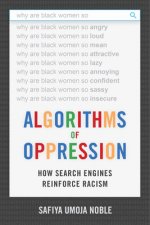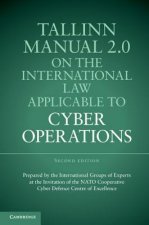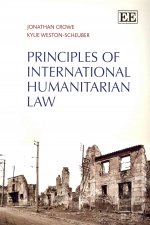
Kód: 01199001
Humanitarian Intervention and the Responsibility To Protect
Autor James Pattison
Humanitarian Intervention and the Responsibility To Protect considers who should undertake humanitarian intervention in response to an ongoing or impending humanitarian crisis, such as found in Rwanda in early 1994, Kosovo in 199 ... celý popis
- Jazyk:
 Angličtina
Angličtina - Vazba: Brožovaná
- Počet stran: 304
Nakladatelství: Oxford University Press, 2012
- Více informací o knize

Mohlo by se vám také líbit
-

Speakout Pre-Intermediate Class CD (x3)
1196 Kč -

Chess History and Reminiscences - Scholar's Choice Edition
846 Kč -

Skoda Felicia Owner's Workshop Manual
815 Kč -

The Rehearsals
361 Kč -

One Piece, Vol. 83
206 Kč -

Algorithms of Oppression
759 Kč -

How to Love Yourself Cards
409 Kč -

Can Democracy Survive Global Capitalism?
386 Kč -

Tarot de la Nuit
582 Kč -

Ancient Egypt
767 Kč -

NVivo R1: Zwölf wesentliche Fertigkeiten für Qualitative Forscher IV
1894 Kč -

Złudne nadzieje
94 Kč -

Stadtkarten-Quiz Großstädte in Deutschland
357 Kč -

Marketing und Strategie im Sport
709 Kč
Darujte tuto knihu ještě dnes
- Objednejte knihu a zvolte Zaslat jako dárek.
- Obratem obdržíte darovací poukaz na knihu, který můžete ihned předat obdarovanému.
- Knihu zašleme na adresu obdarovaného, o nic se nestaráte.
Více informací o knize Humanitarian Intervention and the Responsibility To Protect
Nákupem získáte 204 bodů
 Anotace knihy
Anotace knihy
Humanitarian Intervention and the Responsibility To Protect considers who should undertake humanitarian intervention in response to an ongoing or impending humanitarian crisis, such as found in Rwanda in early 1994, Kosovo in 1999, and Darfur more recently. The doctrine of the responsibility to protect asserts that when a state is failing to uphold its citizens' human rights, the international community has a responsibility to protect these citizens, including by undertaking humanitarian intervention. It is unclear, however, which particular agent should be tasked with this responsibility. Should we prefer intervention by the UN, NATO, a regional or subregional organization (such as the African Union), a state, a group of states, or someone else? This book answers this question by, first, determining which qualities of interveners are morally significant and, second, assessing the relative importance of these qualities. For instance, is it important that an intervener have a humanitarian motive? Should an intervener be welcomed by those it is trying to save? How important is it that an intervener will be effective and what does this mean in practice? The book then considers the more empirical question of whether (and to what extent) the current interveners actually possess these qualities, and therefore should intervene. For instance, how effective can we expect UN action to be in the future? Is NATO likely to use humanitarian means? Overall, it develops a particular normative conception of legitimacy for humanitarian intervention. It uses this conception of legitimacy to assess not only current interveners, but also the desirability of potential reforms to the mechanisms and agents of humanitarian intervention.
 Parametry knihy
Parametry knihy
Zařazení knihy Knihy v angličtině Law International law Public international law
2040 Kč
- Plný název: Humanitarian Intervention and the Responsibility To Protect
- Podnázev: Who Should Intervene?
- Autor: James Pattison
- Jazyk:
 Angličtina
Angličtina - Vazba: Brožovaná
- Počet stran: 304
- EAN: 9780199656622
- ISBN: 0199656622
- ID: 01199001
- Nakladatelství: Oxford University Press
- Hmotnost: 458 g
- Rozměry: 234 × 158 × 17 mm
- Datum vydání: 13. September 2012
Oblíbené z jiného soudku
-

Brownlie's Principles of Public International Law
1982 Kč -

Environmental Protection
367 Kč -

International Law
1112 Kč -

European Convention on Human Rights
2285 Kč -

European Union Law: A Very Short Introduction
283 Kč -

Environmental Law: A Very Short Introduction
233 Kč -

Refugee in International Law
1867 Kč -

Sceptical Essays on Human Rights
1838 Kč -

Stanislavski On Opera
778 Kč -

Europarecht in Fällen
1028 Kč -

Cyber Warfare and the Laws of War
1220 Kč -

Economic Analysis of Liability Rules
1542 Kč -

Tallinn Manual 2.0 on the International Law Applicable to Cyber Operations
1790 Kč -

Cassese's International Criminal Law
1842 Kč -

Diversification and Fragmentation of International Criminal Law
7536 Kč -

Textbook on International Law
1297 Kč -

Principles of International Environmental Law
1572 Kč -

International Law 2nd Edition
1566 Kč -

Offshore Finance
1709 Kč -

Advanced Introduction to International Humanitarian Law
770 Kč -

Human Dignity
1282 Kč -

Rogue States
529 Kč -

Critical Approaches to International Criminal Law
1898 Kč -

Criminological Approaches to International Criminal Law
2809 Kč -

Self-Defence in International and Criminal Law
4754 Kč -

Handbook of Environmental Policy Evaluation
4199 Kč -

Pluralism in International Criminal Law
5301 Kč -

Disputed Territories and International Criminal Law
4215 Kč -

A Farewell to Wars
758 Kč -

EU External Relations Law
1890 Kč -

Water Capitalism
1312 Kč -

Diplomatic Handbook
3066 Kč -

Cases & Materials on International Law
1519 Kč -

International Environmental Law
1286 Kč -

Modern Diplomacy
1428 Kč -

Economic Sanctions and International Law
3645 Kč -

Aust's Modern Treaty Law and Practice
1270 Kč -

Principles of International Economic Law
2292 Kč -

Principles of International Humanitarian Law
828 Kč -

Critical Introduction to International Criminal Law
998 Kč -

International Investment Law and Arbitration
1671 Kč -

Theoretical Foundations of Law and Economics
1152 Kč -

European Public Prosecutor's Office
4945 Kč -

Should Trees Have Standing?
1019 Kč -

Customary International Law in Times of Fundamental Change
1099 Kč -

World Crisis and International Law
758 Kč -

Food Law and Regulation for Non-Lawyers
2518 Kč -

International Criminal Law
1763 Kč -

UN Convention on Contracts for the International Sale of Goods
3298 Kč
Osobní odběr Praha, Brno a 12903 dalších
Copyright ©2008-24 nejlevnejsi-knihy.cz Všechna práva vyhrazenaSoukromíCookies



 Vrácení do měsíce
Vrácení do měsíce 571 999 099 (8-15.30h)
571 999 099 (8-15.30h)